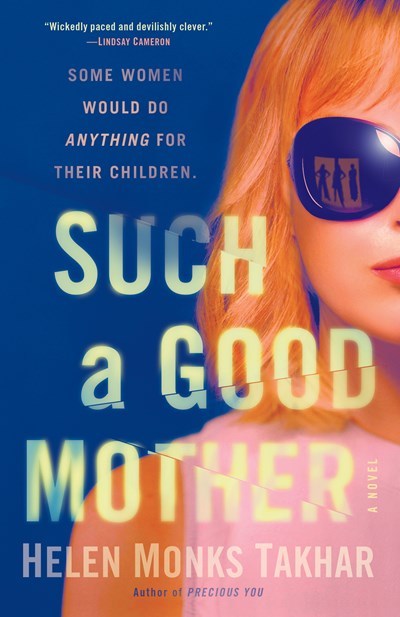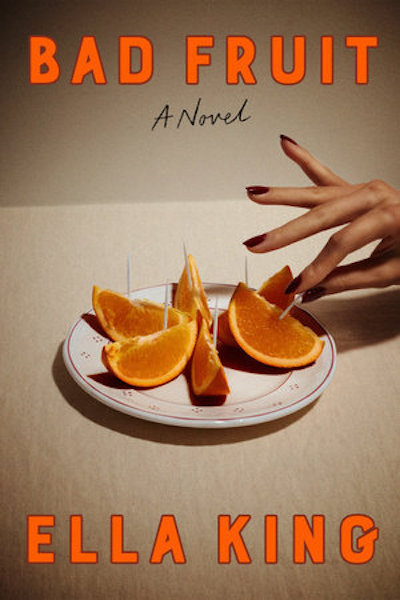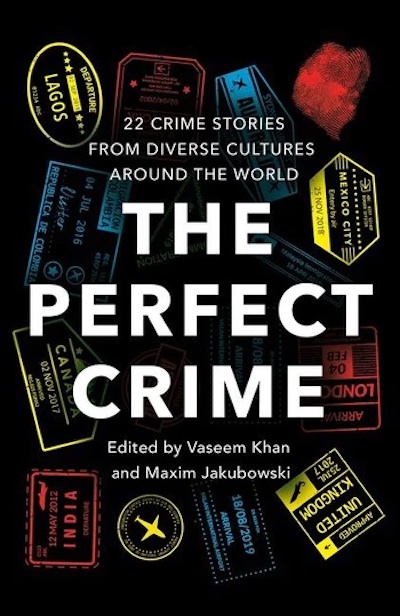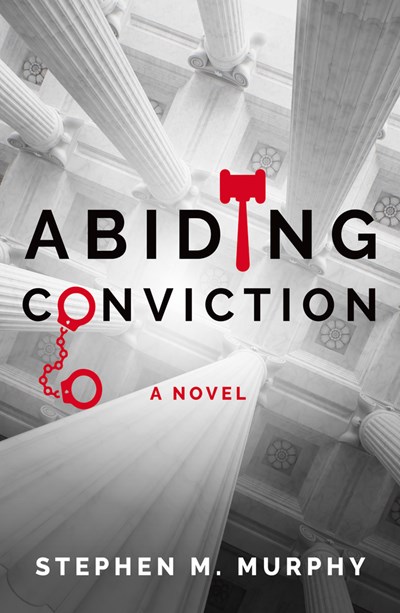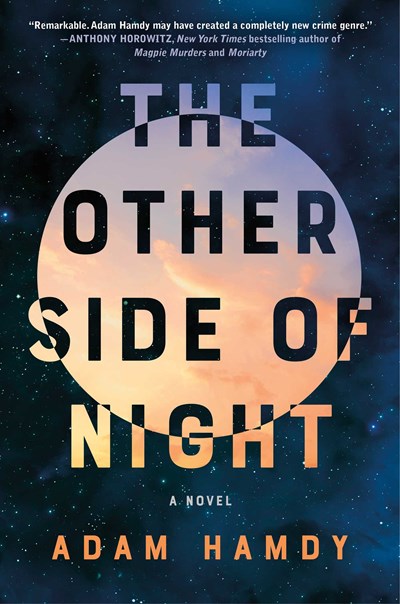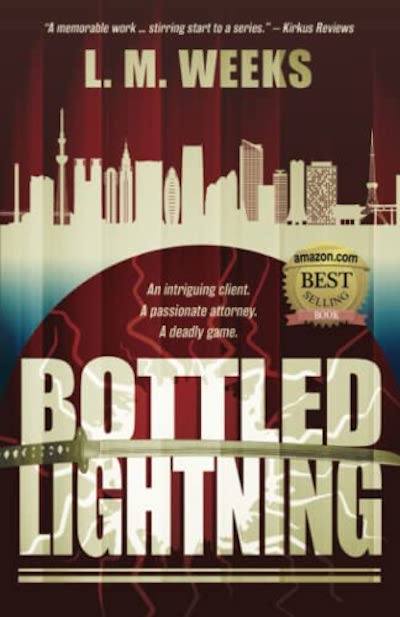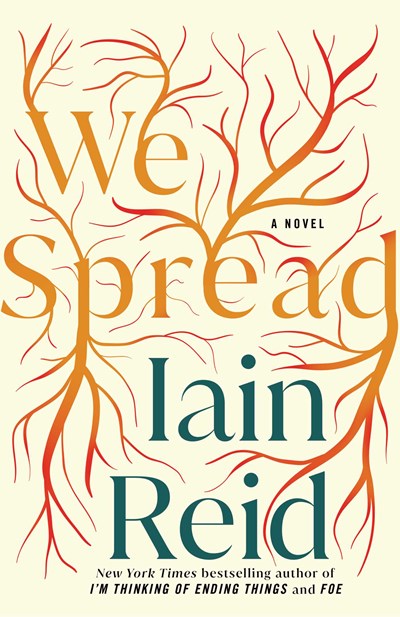How’s this for a setting: a 205 unit high-rise building in rural Alaska that houses the entire town’s population as well as stores, offices, and more. Welcome to Point Mettier, a pretty creepy village to begin with that only gets worse when body parts—a foot, a hand—wash up on the frozen shore. The local cops seem ready to shrug off the remains—lots of tourists fall off those cruise ships!—when they’re joined by Anchorage detective Cara Kennedy, who takes the matter a whole lot more seriously. What was meant to be a quick visit becomes a much longer excursion as the first brutal storm of the season moves in, closing off the tunnel, the one way in and out of town during winter. With time to spare, Cara digs deeper into the community, only to discover that almost everyone in Point Mettier has a secret to hide. A simmering romance with one of the other officers provides Cara with much needed distraction, but soon enough a violent gang, hanging out in a nearby Native village, takes center stage. This is a successful, well-paced first novel that juggles a range of cultures, a handful of strong characters, and a nuanced protagonist, delivering a very satisfying ending. And get this: Point Mettier pretty much actually exists. Check out Whittier, Alaska.
Thrillers
Rose O’Connell’s never been confident. At her downmarket English school, she was bullied as “Rotten Rosie” after her father was publicly disgraced. While her life has since improved, her husband struggles to find work and they’re deep in debt. Then she gets her son, Charlie, into The Woolf Academy, an exclusive school in the rapidly gentrifying neighborhood she grew up in. In fact, it’s her old school, but it’s now completely unrecognizable, as is the house she grew up in, where Amala Kaur, the CEO of the new school, lives. Woolf Academy seems too strict with Charlie yet indulgent of the other children, and while Rose is determined to do whatever it takes to help her son, she quickly finds that the mean girls she faced years ago have nothing on the circle of snooty women in charge here. It’s complicated and confusing when things begin to thaw and Rose is invited into the inner circle after the mysterious death of one of its members; slowly readers will begin to wonder if there’s anything she won’t do to please Amala and her ice-queen clique. By the time Amala wants something that made me gasp out loud—just the first of several gut-punching twists—it seems too late for Rose to salvage her marriage, her career, and even her sense of self. For readers of mean-girl titles and those who enjoyed The Hawthorne School by Sylvie Perry.
Lily lives in Greenwich, England with her Singaporean mother and white English father, but really she lives entirely in a world of her mother’s creation and control. The teen must wear only pink sweaters to please mama, and she even dyes her hair black, wears colored contact lenses, and uses makeup to look more Chinese instead of the ang moh gui, or white devil, her mother accuses her of being. She’s also forced to taste-test spoiled orange juice to make sure it’s just the right level of rancid that mama enjoys, a bizarre task that will be readers’ first signal that something is seriously off here. The emotionally and sometimes physically abused teen is about to get out as she’s been accepted at Oxford University to study law—guess who chose that—but her subconscious seems to have other plans. What at first look like panic attacks turn out to be flashbacks to traumatic events—but ones that happened to mama. How Lily can have memories of her mother’s past, what made mama this way, and whether Lily can ever thwart her nightmare mother and useless father are puzzles that will keep readers rapt right till the end of Singaporean author King’s dark exploration of “the terrible economics of responsibility and blame.” This is one case in which the characters don’t have to be likable for the book to be brilliant. From the awful-mother-tiptoeing-daughter dynamic to weirdness with oranges, Bad Fruit is a perfect readalike for Joanne Harris’s Five Quarters of the Orange.
An anthology of 22 short stories that are selected to witness, as Maxin Jukubowski writes in the introduction, “an explosion of crime and mystery writing by writers of all colours and ethnic backgrounds, winning awards and enjoying critical acclaim, as well as opening up a whole new readership in the process.” And this marvelous collection certainly doesn’t disappoint, with crime stories from diverse cultures, featuring works by S.A. Cosby, Silvia Moreno-Garcia, Rachel Howzell Hall, Sanjida Kay, Walter Mosley, and so many more. It’s fun to encounter authors you think you know trying out something entirely new, such as Abir Mukherjee, who leaves behind 1920s India for a very contemporary tale of crime that ends in a most pleasing way. In fact, many of the stories are full-blown mysteries, just boiled down to their essence, with the shocking, O. Henry-like twists that readers love. Oyinkan Braithwaite’s “Jumping Ship,” a brilliant recounting of a love affair that goes way, way off the rails is so surprising it demands the reader give it a second, or even third, reading. A surefire way to introduce readers to authors, The Perfect Crime is a required purchase for all public libraries.
This is turning out to be one of the most unique, captivating, and above all emotionally engaging crime fiction series being published. Happy Doll—yes, that’s his real name—is 50-ish, ex-military, and a former LAPD cop who lost his PI license and now calls himself a “security consultant.” Yes, Doll has many of the noirish trappings of your classic LA detective, from his worn-down office to his status as a regular at a dive bar. But he’s also a fledgling Buddhist who’s in love with George, a half-Chihuahua, half-terrier mix, is in psychotherapy, and is incredibly generous to those he comes across—provided they’re not trying to kill him. In this story, Doll is approached by a young woman to search for her mother, Iris Candle, who’s likely to be homeless. Candle and Doll, it turns out, were lovers years ago, and Doll can’t turn down an opportunity to see her again. After a week of searching, Doll finally locates Candle—worn down by drugs and years of living on the streets—and their reunion is one of the most poignant passages I’ve read in years. It also sets off the book’s real narrative, complete with some horrific, but highly entertaining, violence and a quest that brings Doll to the edge. As much as I love Ames’ novels and comic memoirs, Happy Doll is his most innovative and successful character yet. Fans of aged, semi-hard-boiled, humorous Los Angeles detectives will also enjoy Andy Weinberger’s The Kindness of Strangers.
Manchester, NH judge Carlos Garcia is in an unexpected and uncomfortable spot: the defendant’s seat, accused of murdering his wife by adding an overdose of Vicodin to her dinner. In every way, he’s one of lawyer Dutch Francis’s least-favorite clients. The judge is not open to any advice, thinks he still has the upper hand in the courtroom, and is clearly withholding information about his wife’s death. Francis is already thinking he shouldn’t have taken this case when he gets two sharp shocks: his famous newscaster wife, Ginnie—they’ve been married a good five minutes—tells him she’s pregnant and not sure she wants to keep the baby, and, later that day, she goes missing. Francis believes she’s been kidnapped, a suspicion that’s borne out as he begins to receive oddities, such as her fingernail clippings, in the mail. The suspense is in high gear throughout this thriller as we follow the twists and turns of the courtroom drama and the chase when Francis hounds the cops to find his wife, but also joins his legal investigator on their own sometimes-scary bid to rescue Ginnie. A startling ending is in store, and getting there is an enjoyable trip through memorable characters, love-fueled desperation, and the exasperations of the justice system.
A novel that, in a good way, defies description. Harriet Kealty, an out-of-work cop, discovers a used book with the phrase “Help me, he’s trying to kill me” inscribed inside. Most of us would ignore it, but Harriet, with time on her hands, decides to investigate. At first, we’re in a classic police procedural, with Harriet sorting out possible leads. Eventually, she’s drawn to a family that’s rife with death, grief, and mystery, a family that she’s surprised to find includes Ben Elmys, whom she has dated and who broke off their extremely intense relationship. Here the novel shifts, shedding realism for a narrative that is more speculative fiction as time becomes paramount while love—lost only to be found again—remains central to the story. Where we end up is as beautiful as it is unpredictable, and Hamby provides the reader with plenty to dwell on. Recommend this book to readers who love a good tale and aren’t afraid of fiction that can’t be easily categorized.
Publishers: Wondering how to keep crime fiction relevant, cutting edge, and appealing to younger millennials and older Gen Z? Then take a page out of the impressive debut Someone Had to Do It. Brandi may have landed her dream job unpaid internship at the fashion house Simon Van Doren, but she wasn’t planning on the microaggressions and reminders that as a young, Black woman she doesn’t fit into the culture (“code for we-can’t-handle-your individuality but-since-we-don’t-want-to-seem-racist-we’ll-invent-this little loophole”). But Brandi’s tenacious—she’s also putting herself through fashion school—and with a little help from dreamboat boyfriend Nate, an up-and-coming football star, she manages to hang in there. When Nate offers to put in a good word with Taylor Van Doren, Simon’s daughter—they go back to prep school—Brandi can’t say no. Taylor’s an it-girl, a model and fashionista who has it all and then some. While Brandi hopes that friendship with Taylor will help launch her career, the opposite happens. Taylor—the absolute best villain I’ve read this year—sets Brandi up for a fall where she risks losing everything she’s worked so hard to achieve. This is one smart, hot, bingeable read that’s got Attn: Netflix stamped all over it.
The catalyst for this fast-moving, Tokyo-set thriller is the invention of a way to chemically produce lightning, which creates an enormously efficient way to generate electricity. As in John Marr’s recent The One and The Passengers, for which this is a good readlike, the human side of the technology overtakes the invention itself, complicating relationships and putting all involved in peril. When the book opens, the danger hits the road, literally, as lawyer Torn Sagara and his client Saya Brooks, the lightning box’s inventor, are attacked on a Tokyo highway, first by men on motorcycle and then by others in a car. Were these separate attacks? Was Torn or Saya the intended target? All the while, Weeks (like Torn, born in Alaska and now a lawyer in Japan) creates an immersive view of the strange life of his protagonist, a half-Japanese, half-American man who shrugs off the slights and outright discrimination he faces from fellow Japanese. Readers will also find themselves voyeurs of the mental gymnastics it takes for the lawyer to sustain two affairs and even start a third before the book is over (physical gymnastics may also come to mind as Torn and one of his mostly ignored girlfriends take advantage of an airplane bathroom). As well as taking on many interesting details of Japanese culture, including its funeral rites, by the end readers will also be well acquainted with the flawed but lovable Torn and will hope for more visits to his between-worlds life.
I read this enormously engaging foray into aging, truth, and memory that completely defies characterization in the course of an afternoon. Penny has lived for decades in the same apartment with her partner, who is now deceased. Both artists, he was the one with the career, she just paints. While aging is a struggle, Penny has a series of serious incidents: she fears she is being observed, thinks she hears someone else in the apartment, then has a fall that could have been fatal. Her superintendent intercedes and she’s moved to an assisted-living home in the country; supposedly, her partner arranged this before his demise. Initially skeptical, Penny comes to love the home, which houses just three other occupants and two staff members—the leader of whom seems to use an experimental method of care. Penny starts painting again, eats well, and makes a friend. But slowly she grows suspicious, and as time becomes more fluid than linear, and what seems like weeks could be years, she fears that she and the other residents are being hurt in some way. Or is she suffering from dementia, with reality and the imagination alternating to create some other state of being? By the author of the cult classic I’m Thinking of Ending Things, this book looks squarely at a future many of us will experience but that we seldom discuss. A great choice for book groups—readers will want to hear and discuss other reactions


